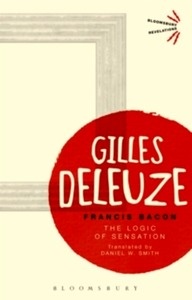Francis Bacon: Logic of Sensation

Editorial Bloomsbury Publishing PLC
Fecha de edición octubre 2017 · Edición nº 1
Idioma inglés
EAN 9781350040823
170 páginas
Libro
Resumen del libro
In this landmark text by one of the most influential philosophers of the twentieth century, Gilles Deleuze takes the paintings of Francis Bacon as his object of his study. The book presents a deep engagement with Bacon's work and the nature of art. Deleuze analyzes the distinctive innovations that came to mark Bacon's style: the isolation of the figure, the violation and deformations of the flesh, the complex use of color, the method of chance, and the use of the triptych form.
Here Deleuze creates a number of his well-known concepts, such as the 'body without organs' and contrasts his own approach to painting with that of both the phenomenological and the art historical traditions. Deleuze links Bacon's work to Cezanne's notion of a 'logic' of sensation and, investigating this logic, explores Bacon's crucial relation to past painters such as Cezanne, Velasquez, and Soutine.
Biografía del autor
Gilles Deleuze nació en París en 1925. Fue profesor de Filosofía en la Sorbonne y es autor de varios libros, entre ellos, Nietzsche y la filosofía, La filosofía crítica de Kant, Proust y los signos, Spinoza: filosofía práctica, La lógica del sentido, La imagen-tiempo y, en colaboración con Félix Guattari, El anti-Edipo, obra que le dio a conocer mundialmente y le convirtió en uno de los filósofos más polémicos de la década de 1960. <br> Deleuze es una figura clave de la filosofía posestructuralista francesa. Considerado empirista y vitalista, su obra, que se basa en conceptos como la multiplicidad, el constructivismo, la diferencia y el deseo, se aleja sustancialmente de las principales tradiciones del pensamiento continental del siglo xx y le sitúan como una figura influyente en las consideraciones actuales sobre la sociedad, la creatividad y la subjetividad. <br> Deleuze escribió sobre Spinoza, Nietzsche, Kant, Leibniz entre otros, entre los que también contaban autores y obras literarias, el cine y el arte. Deleuze afirmaba que no escribía sobre arte, literatura o cine, sino que emprendía encuentros filosóficos que le llevaban a nuevos conceptos. Como constructivista, era categórico al afirmar que los filósofos son creadores y que cada lectura de la filosofía, o cada encuentro filosófico, debería inspirar nuevos conceptos.








